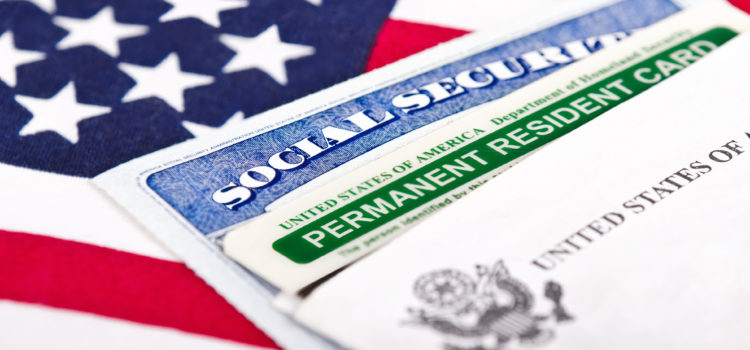
08 Sep Uncertainty Looms as ‘Public Charge’ Rule Nears

By Michael J. Fitzgerald
Immigrant rights advocates joined a U.S. Congresswoman from California in sending a reassuring message to people worried about a controversial rule change to the “public charge” segments of the federal Immigration and Nationality Act.
“Don’t panic. It’s not over,” Connie Choi of the National Immigration Law Center said. “Advocates are pushing back.”
Choi was one of five speakers in a teleconference Sept. 5 sponsored by Protecting Immigrant Families and Ethnic Media Services. The speakers outlined a wide range of legal, organizational and information-based strategies to combat the change that could disqualify people from entering the U.S. because they might be considered a “public charge.”
The new INA rule set to take effect Oct. 15 makes it possible for immigration officers evaluating an applicant for a green card and those seeking to enter the U.S. on certain visas or adjust their immigration status if they receive benefits from Medicaid, the Supplemental Nutrition Assistance Program (SNAP), or federally subsidized housing such as Section 8.
The new rule also allows officers to consider English proficiency — or lack thereof — medical conditions and the availability of health insurance in determining if a person is admissible.
“It has already created a climate of fear, forcing some to get off public benefits,” Rep. Judy Chu (D-California) said. “The administration is circumventing the role of Congress. It’s an egregious and blatant overreach by the Trump administration.”
Chu has introduced HR 3222, a bill that would block any federal dollars from being used to implement the new rule.
Other health and legal service providers echoed similar concerns.
Asian Health Services in Oakland has brought immigration attorneys into its clinics to talk with worried patients who are concerned that using benefits through clinics or other publicly funded programs could jeopardize their chances to stay in the U.S. They also fear that taking any public monies could threaten other members of their households not currently documented.
In New York, Lisa David, president and CEO of Public Health Solutions, said her agency has seen a dramatic drop off in enrollments for the SNAP and Women, Infants and Children (WIC) even though WIC isn’t one of the programs specifically mentioned in the new rule.
“The level of fear around this rule is palpable and demonstrable,” she said. “The level of confusion is extraordinary. People are confused about what’s real.”
David said people are starting to decline benefits, giving back WIC checks and even asking for their names to be removed from the agency’s database out of fear of running afoul of the public charge rule.
“We’re going to see a worsening conditions of health care,” she said.
In trying to navigate what might or might not be a problem, teleconference participants stressed the need for people to consult with people familiar with the new rule, which may include an immigration attorney.
But Amanda Lugg, director of Advocacy of the African Services Committee, said it was also important to use an attorney associated in some way with one of the community-based organizations that help immigrants.
A series of lawsuits have been filed in federal courts to try to delay implementation of the public charge rule. A hearing on a one request for an injunction has been set for Oct. 2.
“We have been preparing for this day since the beginning of the Trump administration,” Choi said.






No Comments